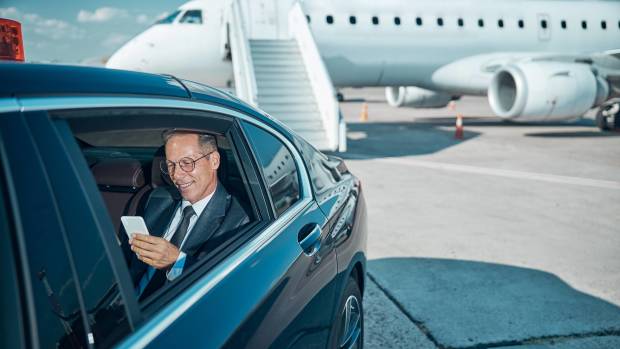
With most major airlines struggling to navigate the surge of people currently taking trips put off since the pandemic, scammers are moving in on the opportunity to cash in on traveler desperation.
The way this is done can take endless forms that, in some cases, go back decades. Some are simply robocalls promising "great vacation deals" while more sophisticated scammers have been known to impersonate airlines and then reach out to tell customers that there's a problem with their flight booking they can resolve by paying a fee.
Don't Miss: How to protect yourself from travel scams
One new scam taps into modern technology by advertising online travel guides for popular tourist cities as written by successful travel writers. The fraudsters behind the scam flood the Amazon (AMZN) -) listing with five-star reviews to bring what is actually an AI-written guidebook of info available within the first pages of the internet to the top of many people's searches.

Shutterstock
These are the most common travel scams going around in 2023
"It seemed like the guy just went on the internet, copied a whole bunch of information from Wikipedia and just pasted it in," Amy Klosky, a Pennsylvania resident who bought one such fake travel guide for an upcoming trip to Paris, told the New York Times.
While $16.99 is not an enormous amount to lose, another scam currently making the internet rounds could put one out several hundreds or even thousands of dollars.
The American Automobile Association recently warned its members of an airline scam in which fraudsters post phone numbers pretending to be the airline. Passengers affected by a delayed or canceled flight will look for a number to call online and, when they reach it, fall upon a someone asking them to pay a "service fee" to get their flight rebooked.
Need to call the airline fast? Here is why you may want to be cautious
In some cases, fraudsters got travelers to pay more than $1,000 by convincing them that they needed to pay this much because "airfare has gone up." Even if the caller recognizes the scam and does not pay (or blocks the purchase later), the same fraudsters have been known to take down the person's phone and credit card information.
Back in May, Canadian resident Cathy Chang lost $675 Canadian dollars (roughly $504 USD) when she called an Air Canada (ACDVF) -) number she found online and was told that she would lose an upcoming flight from San Francisco to Sydney, Australia that she booked with points if she did not pay the service fee.
While she was eventually able to get her bank to recognize it as fraud, Chang had to enlist an expert to help decipher what happened and prove that she had not made the payment to Air Canada but to someone impersonating the airline. The scammers were able to surpass the credit card's fraud detection system by registering a name mimicking the airline.
"When I reviewed the documentation she sent me, I could see why a Chase (JPM) -) agent had rejected her credit card dispute on the basis of fraud: the charges identified the merchant as Air Canada," Michelle Couch-Friedman, an editor for travel website the Points Guy who was helping Chang, wrote. "The only peculiarity to the purchase line item was the phone number listed with the entry: 844-914-3710."







